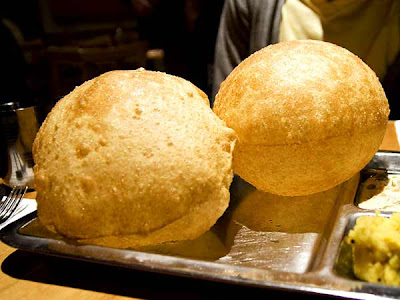 MAY 15: TAWANG
MAY 15: TAWANGI wrote in the previous Blog that I was eating Puris. Perhaps not all of my readers have eaten Puris or know what they are. For those interested, here is a recipe:
2.5 cups chappati flour
2/3 cup water at room temperature
ghee for brushing the bread while rolling out the dough
Oil for deep frying
Method to roll out the dough
Make stiff but pliable dough.
Cover the dough with damp cloth and set aside for 30 minutes.
Knead dough a little again. Dough should be stiff enough to roll without extra flour.
Make small balls of the dough and cover them with damp cloth.
Take one ball of dough and dip a corner of ball in melted ghee or oil and roll it out into 4 to 5 inches round.
Repeat the same process to roll out all puris.
Frying the Puris
Heat plenty of oil in a kadhai until very hot.
Put in a puri and immediately start flickering hot oil over the top of it with a spatula so that it will swell up like a ball.
This should take only a few seconds. Flip the puri over and cook the other side until golden brown.
Serve hot with curries or vegetables.







































